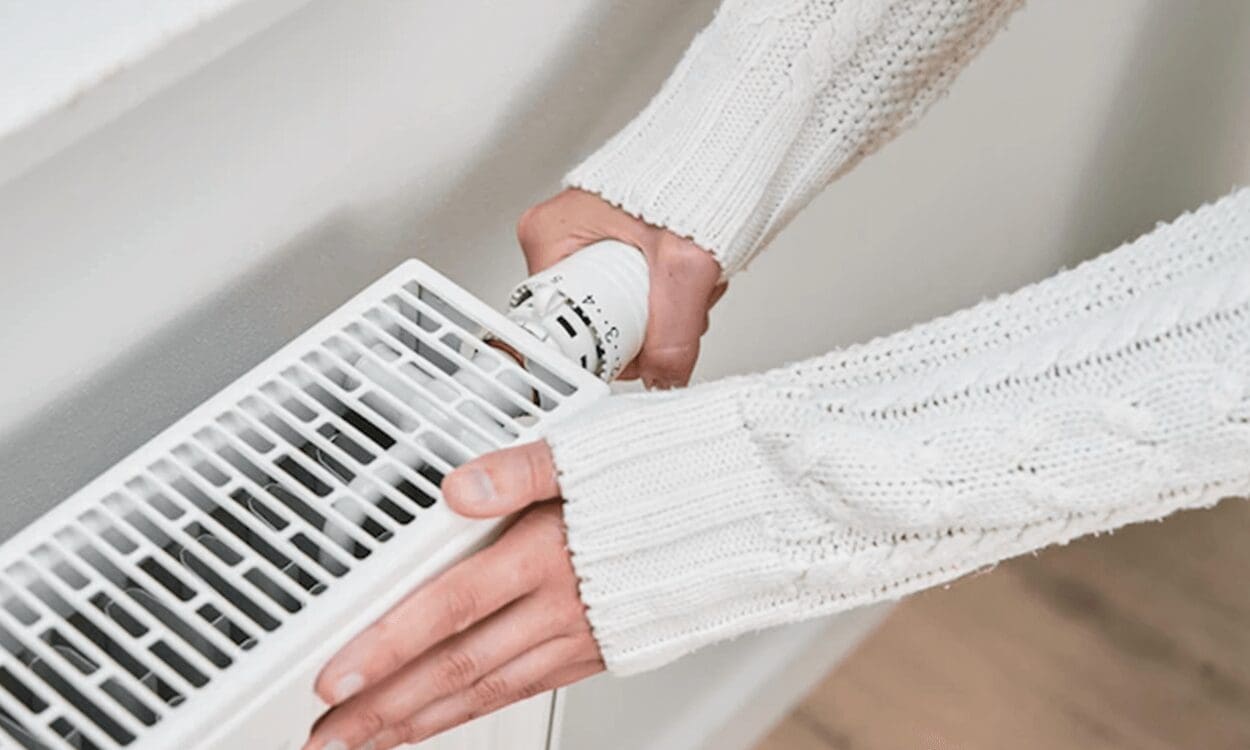If you’ve noticed that your radiators aren’t heating up properly or are cold at the top and warm at the bottom, they may need bleeding. Luckily, this is a relatively easy job for you to do without the help of a professional, so we’re here to give you a step-by-step guide on how to do it.
When would bleeding a radiator be necessary?
Radiators need bleeding when there is air trapped in them. This trapped air will stop the warm water circulating within them, which can make them warm at the bottom but cold at the top.
Trapped air means that the central heating system isn’t working efficiently, and it can take a longer time to warm the room, which can cost money – and in a cost of living crisis, this is something we want to reduce as much as possible!
Another sign of trapped air is noisy radiators that are making loud banging, clanding or gurgling noises. These sounds are annoying, but are often not a cause of concern.
We recommend that you bleed your radiators once a year, even if they are all working properly, as this will ensure that your central heating system is working efficiently.
How to bleed your radiators?
You’ll only need two or three pieces of equipment to bleed your radiators, both of which are easy to find at a DIY store if you don’t already own them:
- A radiator bleed key
- A jug or cloth to catch any water that leaks during the bleeding process
The first step in bleeding your radiators is to turn your heating off and allow your radiators to cool down completely. This will stop you from burning or scalding yourself on hot water.
Once your radiators have cooled down, hold your jug or cloth under the bleed valve and insert the bleed key. The key will fit into the square groove in the centre of the valve at the top of your radiator. Slowly turn the key anti-clockwise until air starts escaping. Don’t worry – you’ll know when the air is escaping because you’ll hear a hissing noise.


Your jug or cloth will be in position to catch any leaking or spraying water. Once the hissing stops and there’s only water coming out, quickly retighten the valve by turning the key clockwise.
Turn your central heating system back on and allow your radiators time to heat up again. If heat is evenly spread through the radiator and it seems to be heating up properly, you’ve fixed the problem.
Bleeding your radiators can cause your pressure to drop. Check the pressure by looking at the gauge on your boiler.If the pressure is too low, you’ll need to top it up by using the filling loop. If you are unsure whether the pressure on your boiler has dropped, or if you need assistance when topping it up, speak to one of our friendly team members and arrange a call out.
Still not working properly?
If you find that your radiators still have cold spots after bleeding them, you may have another issue. Please contact us today to get the assistance of one of our registered Gas Safe engineers.
